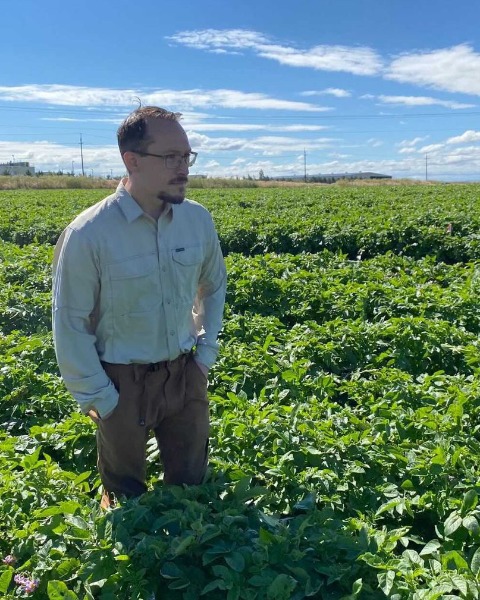Student 10-Minute Presentation Competition
Formal and Informal Teaching
Student Competition
Student
Undergrad 10-min Competition: FIT, MUVE, and SysEB: Education and Outreach
Impacts of inclusion rates of black soldier fly, Hermetia illucens (Linnaeus), larva on the timing of thermophilic stage composting in dairy solids
Monday, November 10, 2025
11:06 AM - 11:18 AM Pacific
Location: Oregon Convention Center, A106, OCC

Grayson Stephens (he/him/his)
student
Oregon State University
Corvallis, Oregon
Alexander Maxwell Butcher
Oregon State University
Albany, Oregon
Presenting Author(s)
Co-Author(s)
The black soldier fly (Hermetia illucens) has recently been heralded as novel composting tool that can close the loop on agricultural systems. Additionally, the frass produced by black soldier fly larvae has been gaining interest as a source of plant nutrients which are rich with anti-microbial peptides. Dairy solids, the dry manure and bedding removed from cattle enclosures, is an abundant agricultural biproduct that can benefit from black soldier fly composting. However, proper heat sterilization is generally required to eliminate pathogens, like salmonella, before it can be applied as a plant nutrient. Our study evaluated the impacts of three inclusion rates (none, moderate, and high) of black soldier fly larve on the development of a thermophilic state in composting dairy solids. We additionally evaluated the impacts of temperature vs antimicrobial rich frass content on the sanitization of Salmonella from dairy solids. Results and implications for composting and food safety are discussed.
.png)

